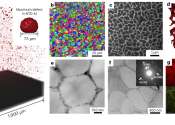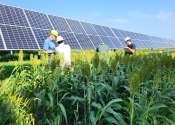Fukushima Daiichi nuclear plant starts 3rd release of treated radioactive wastewater into the sea
The tsunami-damaged Fukushima Daiichi nuclear power plant began its third release of treated and diluted radioactive wastewater into the sea Thursday after Japanese officials said the two earlier releases ended smoothly.
Nov 2, 2023
0
16









